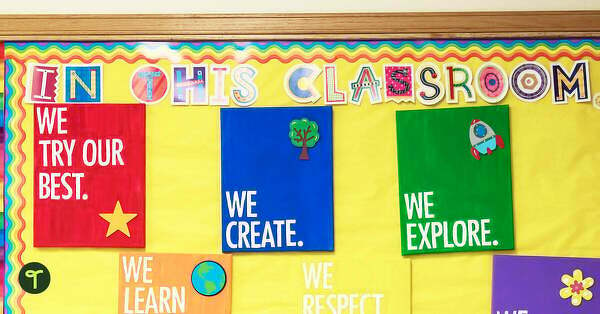It has been over ten years since I completed my teaching degree, and so making such a general statement about what is or isn’t taught in current university courses is a little bit cheeky, I know.
That said, when reflecting on my own experience of finishing university and beginning teaching, I’ve come to a bit of a realisation. It’s true, I did feel prepared to tackle most of the requirements of my new role as a teacher. You know, the obvious ones like curriculum and lesson planning, writing assessment tasks, classroom management, and connecting with my students, their experiences and welfare.
However, as a graduate teacher, what I had no real skill in was managing the sheer volume of work that I was able to create for myself.
I Can Do That! And That, and That!
At university, our workload is significant but measured. There are limits to how many subjects (or courses, whatever the current terminology may be) you can take in one semester. Lectures, classes and even university events are numbered. Assessment tasks are planned with consideration of what is achievable for students in the required time frame, even if as students we sometimes felt the time-pressures were unreasonable.
On the other hand, as a beginning teacher, it really does feel like the sky is the limit in terms of just how much we can do. No longer are the first level of planners and organisers above us. We are those planners and organisers ourselves.
And so, our inspired and capable brains can go into overdrive. Everything that we learned at university finally has the chance to come to fruition. The visions we had of the carefully differentiated and valuable lessons we would teach every day, of the amazing resources we would create, and of the engaging and likable teacher, we would be.
Having spent so much time at university, producing the best work we could (and being graded on it), can contribute to a subsequent, and somewhat conditioned, thirst for perfectionism.
Not only that, but our creative and inspired hearts and minds hold, at the centre of it all, a passion for connecting with, helping and educating kids.
The volume of work we take on in pursuit of this is, in some respects, self-created. And, it’s easy to see how all of this can become part of a recipe for teacher burnout. Perhaps it is also a small part of the reason why so many beginning teachers leave the profession within their first five years.
When Ideals and Reality Collide
I must point out, I am not drawing attention to these challenges to say that the ideals we graduate with are unobtainable. In fact, I think they are crucial to maintaining motivation. Our passions, values, and beliefs are often what drew us to this demanding and exceptionally rewarding career. They are a fundamental part of who we are and part of what makes a good teacher.
What I believe is that some new teachers may benefit from being taught more explicitly how to balance expectations with what can realistically be achieved. And perhaps, even more importantly, receive consistent reminders that settling for “good” instead of “great!” is not a marker of failure (and yes, I hope this post may act like one of those reminders if this line of thinking is resonating with you!).
“It’s incredibly important to understand your own bandwidth.”
– Tammy Leigh Kahn, Huffington Post
When we think about technology and bandwidth, we know the term refers to a system’s finite capacity for transmission. It’s a helpful metaphor for thinking about our own capacity for work.
In teaching, there are many demands on your work and time that are outside of your control. Which can make it hard to make a seemingly conscious choice to lessen the focus on “great” in order to meet the obligations of your role. Sometimes, we feel like settling for anything less than great is a direct contradiction of our values and reflects poorly on us as professionals (the ultimate fear of the beginning teacher!). However, it really is okay to do exactly that sometimes, and it doesn’t mean you’re a bad or lazy teacher.
Mastering this kind of ‘bandwidth perspective’ can make space in our lives to better realise those most beautiful inspirations and ideas. It gives us the mental space needed to recognise and take pride in the positive impact that we do have on our students.
Taking this perspective out of our minds and turning it into our reality doesn’t have to be a stumbling point. With practice, making little shifts in how we manage our priorities and use our work time can make a big difference to our feelings about workload and help to avoid burnout. It’s also a huge part of why I am so excited to be a part of the passionate Teach Starter team who work day in, day out, to provide high-quality teaching resources so you can save time without feeling like you are settling for less.
Kicking Guilt to the Kerb
In one of my most recent gigs, I have been able to draw a lot of parallels between beginning teaching and beginning parenthood (#staywithmehere). Holding in your heart the experiences, growth, and future of little people is both exciting and terrifying. We have a strong desire to do all that we can for our children and students. Often this means we feel a sense of guilt or failure if not meeting our own perceptions of what it means to be “doing what’s best for them”.
With that in mind, it’s time for me to throw a few quotes and clichés at you. Ones that I wholeheartedly believe exist for a reason.

“The fact that you worry about being a good…” teacher “…means that you already are one.”
– a Jodi Picoult quote, of sorts
Okay, I may have replaced a keyword in this one, but the sentiment rings true. What you can achieve in the hours, the days and the weeks that you have is enough (and yes, at report time this does include a few of the wee hours!).

“No one is perfect, that’s why pencils have erasers.”
– Unknown
Don’t procrastinate, or doubt your decisions for fear of imperfection. You’d rather your students give something a go than be paralysed by a fear of failure, right? They will learn how to see mistakes as an opportunity for growth (a key part of building resilience) when they see you modelling this perspective too.

“Good teachers are the reason why ordinary students dream to do extraordinary things.”
– Unknown
Notice the quote doesn’t say anything about great teachers? That’s because good enough is good enough! If you are a bit of a perfectionist (like me!), have a listen to this TED talk about self-compassion by Dr Kristin Neff. It might just be a game-changer.
A New Conversation
I know there will be aspects of this post that won’t sit quite right for some. It is, after all, a reflective piece, written from my individual perspective and based on my few, short years as a beginning teacher. Further to that, this post barely touches on the whole gamut of connected ideas and issues surrounding teaching and its many and varied social, cultural, and political contexts. These are issues that can be delicate and are, most often, very complex.
However, I think there is always room for more conversation about how we manage what is required of us each day, both physically and mentally, whatever our positions within the greater field of education may be. We bring our own knowledge, experiences, thoughts, and behaviours to our individual understanding of what it means to be an educator. Each of these elements of self, influences how we work and how we view our work.
Sharing our perspectives must become a part of a new conversation about teaching.
A conversation that is open and frequent. One that is positive and supportive.
One that doesn’t only focus on the challenges facing educators, but empowers both new and experienced teachers to manage their workloads and wellbeing healthily by fostering three essential things.
- A means to reframe their own experiences by seeing their perceived “failures” as common, shared markers of personal and professional growth.
- The ability to make informed decisions about what they do and don’t add to their To Do List.
- The creation of a culture that ditches guilt and self-doubt in exchange for self-belief and confidence in their effect.
What I’m sure most everyone can agree on is the value of every person who has stepped into the complex and challenging field of education. That those who support and guide our children towards adulthood each need to find themselves in a community of open conversation and support. For we are all, now and forever, still learners!








Comments